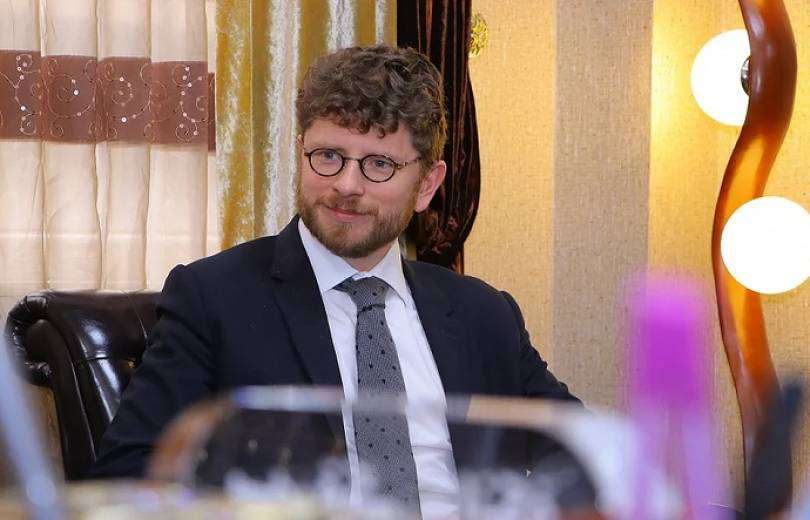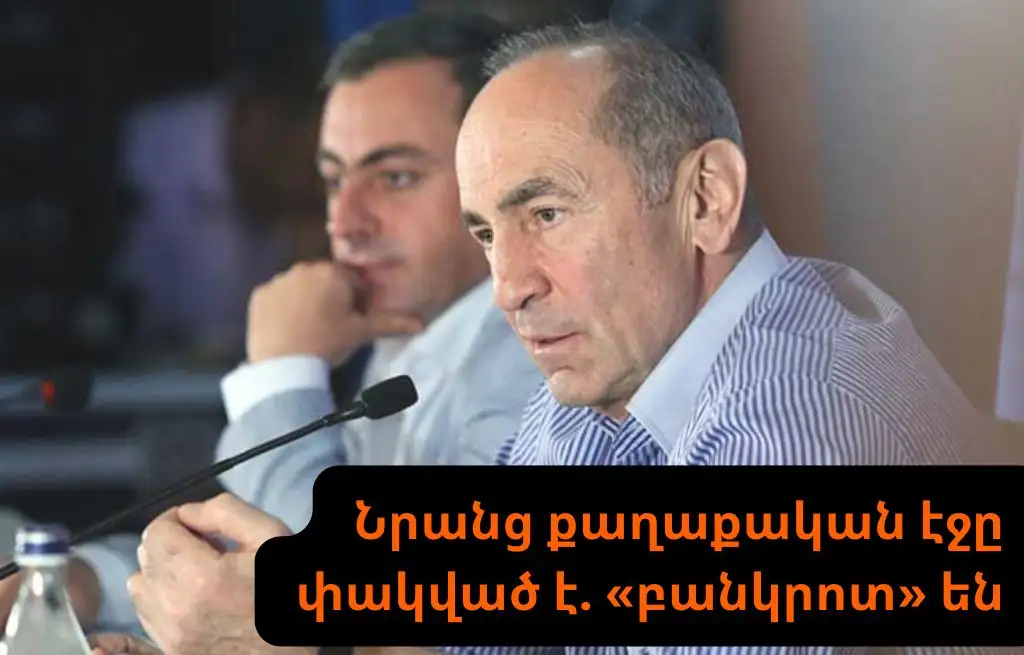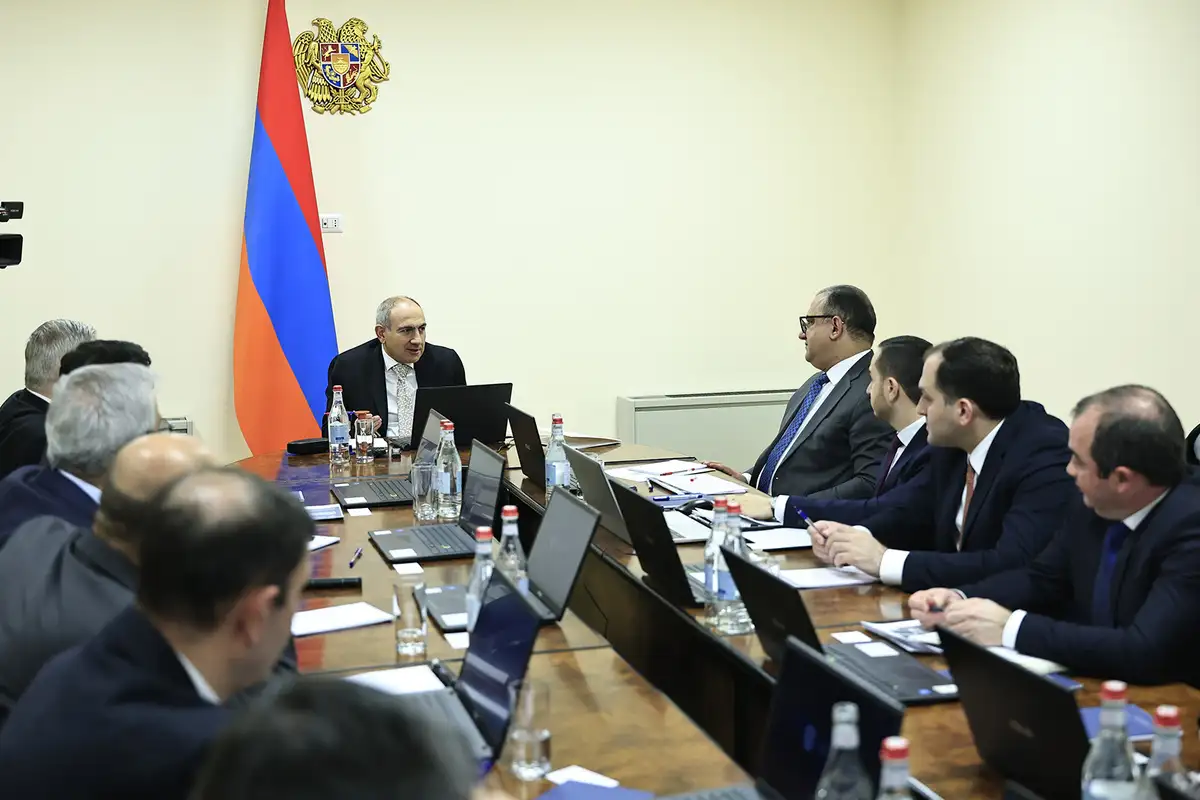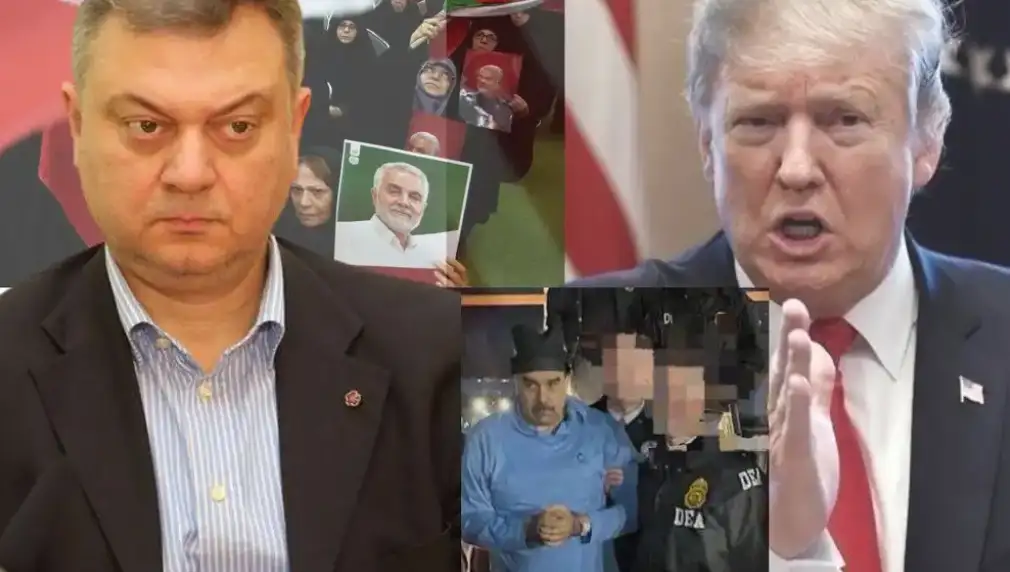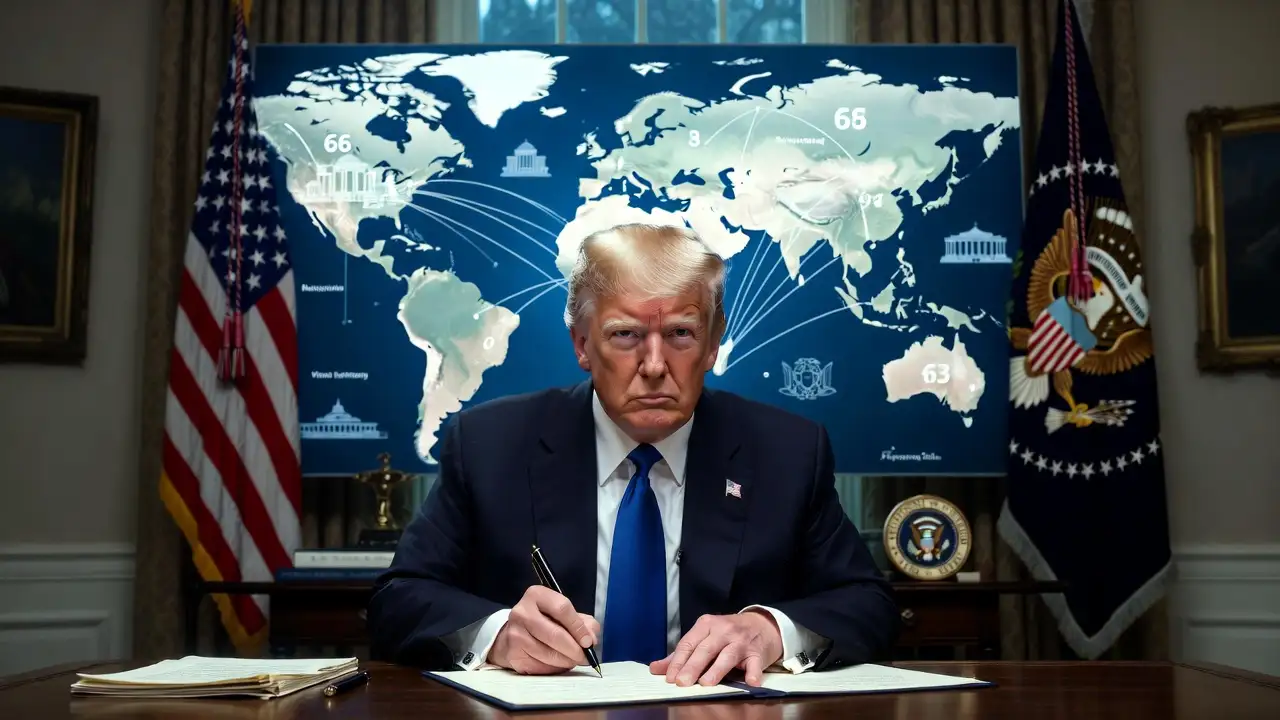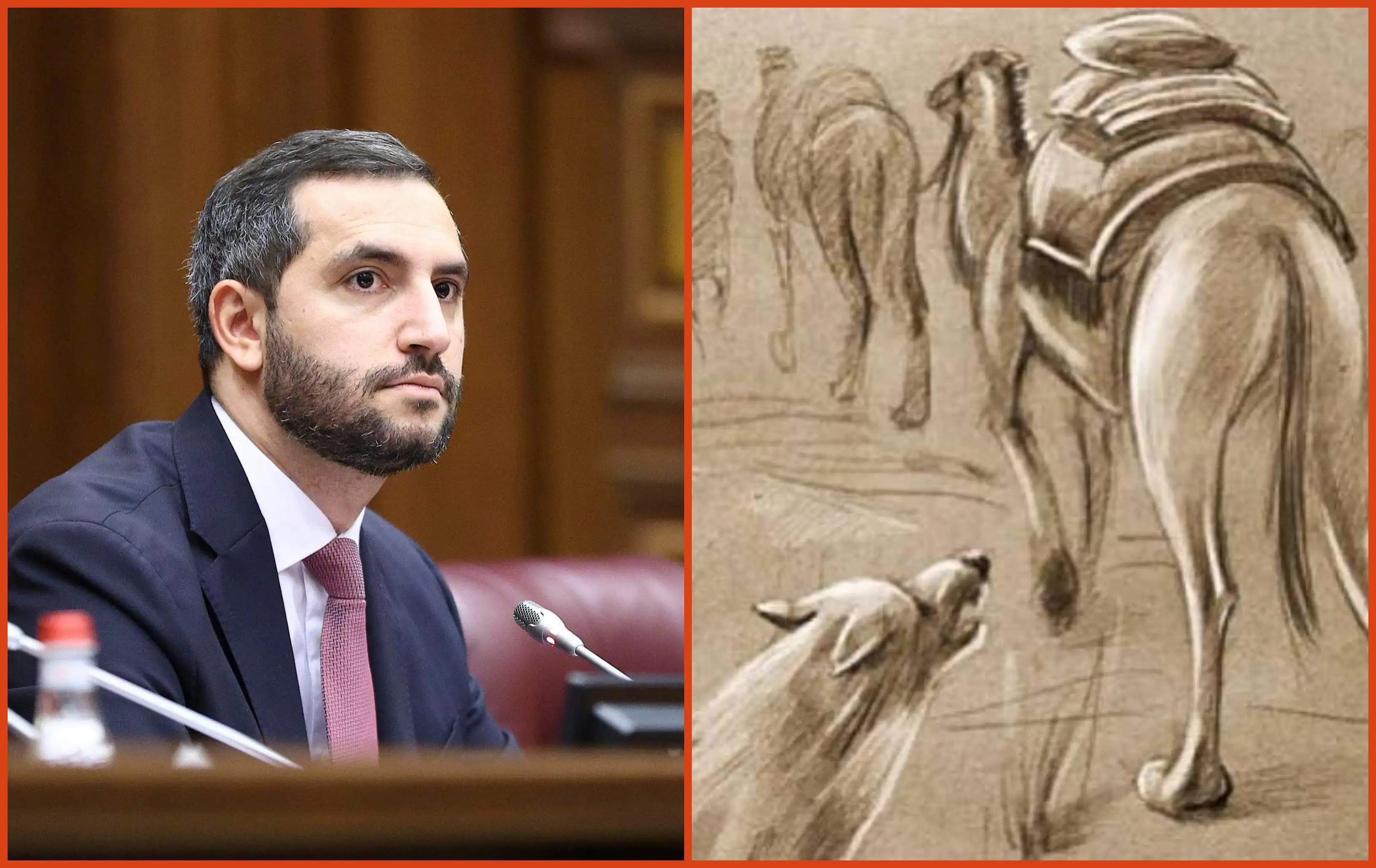France is concerned about Azerbaijan's violation of Armenia's territorial integrity. France's cooperation with Armenia in the field of defense, the funds that France sends to Armenia, are aimed exclusively at the defense of Armenia. The two countries are building cooperation in the field of defense for the long term.
"Armenpress" spoke with the Ambassador Extraordinary and Plenipotentiary of France to Armenia, Olivier Decotigny, about Armenia-France relations, cooperation in defense and other fields, upcoming visits from France, and other issues.
Mr. Ambassador, Armenia-France relations have acquired a new quality. Last year, Armenia and France signed documents on cooperation in the field of defense. For the first time in history, the French Minister of Defense was in Armenia. What does this mean? How do you evaluate the results of the visit? Will cooperation in the field of defense be long-term and deepen?
- It is not only defense cooperation. In the last 2-3 weeks, we met with the foreign ministers of the two countries in Munich. The Prime Minister of Armenia, Mr. Pashinyan, was in Paris and participated in the burial ceremony of the remains of Misak Manushyan, a famous member of the Resistance Movement of Armenian origin, in the National Pantheon. The president and the prime Minister also met. Of course, the visit of the Minister of the French Armed Forces to Armenia was significant. This was the first for the Minister of the French Armed Forces and the Minister of a NATO member country, which is pretty substantial. We have had diplomatic relations with Armenia for 32 years. Diplomatic ties with independent Armenia were established on February 24, 1992, but they have never been so complete and reliable. Yes, we are building long-term cooperation, including cooperation in the defense field; it is not only about military purchases, which are necessary but also about training, including training of high-ranking Armenian officers. It's about counseling.
When two military academies of two countries sign an agreement, such as the one signed during the visit of the Minister of the Armed Forces of France, you are indeed building long-term cooperation.
- Do you think that cooperation will expand?
- We listen to the needs of our Armenian partners.
Mr. Ambassador Azerbaijan is actively buying weapons from Turkey, Israel, and other countries, while Aliyev accuses France of arming Armenia and contributing to the escalation of tensions in the Caucasus region. To weaken Russia's role in the South Caucasus. How would you react to this? What interest does France have in defense cooperation with Armenia?
- In contrast to those specific frameworks that you refer to, we do not think in terms of spheres of influence, we think in terms of the right of each state to protect its sovereignty and territorial integrity. And it is not only a concern for France. In the past few years, Armenia's neighboring state, Iran, has expressed concern about Armenia's sovereignty and territorial integrity many times. We disagree with Iran on many issues, but this is one issue we agree on. All UN member states must agree on this issue because, under the UN Charter, all UN member states recognize and must support the integrity and sovereignty of other member states. It is a shared commitment. As for the concerns expressed by Azerbaijan, they can be sure that the type of cooperation, the kind of equipment that we are providing to Armenia, is aimed at the defense of the country; it is purely defensive. Let me give you a good example: when we talk about air defense, you must enter the airspace of Armenia to avoid facing the air defense of Armenia, it is a defensive capability.
- So, defense cooperation is about Armenia's sovereignty.
It is about protecting Armenia's sovereignty, territory, and people. And it's been made clear from the very beginning that everything we supply—weapons, equipment, and training—fits that goal.
Recently, the Prime Minister of Armenia announced that Azerbaijan is preparing for a new war against Armenia. There have been negotiations and meetings with the participation of France. What role can France play in preventing the new war that is being prepared?
- Some disturbing statements are received from Baku. And the Prime Minister and the Republic of Armenia will listen to and consider those statements. France played an important role in obtaining some critical elements in the negotiations between Armenia and Azerbaijan, namely, in Prague in October 2022, an agreement was reached between the two sides to recognize each other's territorial integrity mutually and to resolve border issues based on the Almaty Declaration. This is a benefit we already have. We now support all efforts under the auspices of the European Union and the United States to reach a lasting, sustainable, and just peace agreement. This is our position; whatever may happen in that direction will also receive our support.
- Mr. Ambassador Armenia has always declared that it is ready and interested in peace with Azerbaijan. Still, considering Aliyev's way of breaking the agreements, it is always mentioned that an international guarantee is needed to implement the peace agreement. According to you, who, what can that guarantee be, and what role can the EU and France play in this regard?
Tango is danced by two people. First, both parties must sincerely want to reach an agreement. And, over the past 30+ years, we've come to a certain confidence that third-party support and guarantees are needed.
American and European mediations are the most reliable guarantees. In the case of the Nagorno-Karabakh conflict, we have seen that the guarantee system, which has been in place since 2020, did not work. And we should learn from it.
- How do you imagine the future cooperation between Armenia and France? In which areas do you see the potential for deepening? In particular, what about economic cooperation?
- Our cooperation with Armenia is undoubtedly not limited to military issues. It is the latest addition to our partnership. Many actors are involved in this cooperation: the French government, French government agencies, French companies, French non-governmental organizations, and organizations of the Diaspora in France. Everyone is trying to consider the current situation, the current strategic situation of Armenia. My advice to them, and I meet them very often, is to focus on the most strategic sectors and areas of Armenia, even though they are under the most significant threat. And if you have a strategic approach, there is no small plan or question. Everything is relevant, helpful, and influential as it is strategically thought out. So, in this regard, a priority, which was set during the meeting between Armenian Prime Minister Pashinyan and our President in Paris 2 weeks ago, is the infrastructure in energy, transport, and communication. Strengthening and supporting Armenia also means strengthening the infrastructure. And we pay a lot of attention to that.
- Is a high-level visit from France planned to Armenia shortly?
- The foreign ministers of the two countries met a few weeks ago. It was neither in France nor Armenia, so there will likely be some visits from both sides soon. And, as you know, the Prime Minister of Armenia invited the Prime Minister of France to visit Armenia. Visits are essential because they allow significant progress and assessments to be made. But there are more visits than just official visits that I would like us to focus on. Over the weekend, two very prominent French surgeons were in Armenia working with Armenians, imparting critical skills that can help save people's lives in cases of bleeding. Thirty percent of casualties in recent conflicts have resulted from bleeding. Famous surgeons come from France and spend time helping Armenia. And we have something similar in all areas. Important visits are pending, but there are no non-critical visits.
- Mr. Ambassador, would you like to add something?
- I would like to thank you very much. I am very grateful to Armenia for the hospitality shown to me, my team, and the representatives of different sectors of France. Over the centuries of contact, great trust and friendship have been formed in the relations between our two countries and peoples, making our work more influential and meaningful. So, thank you to all Armenians who accept us in this way.




